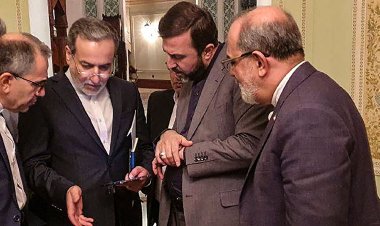Ukraine Presses EU to End Welfare Payments to Its Citizens, Says EL Pais
The Ukrainian authorities believe that a lack of support would prompt citizens to return home.. source:TROIB RTS

Following the escalation of conflict with Russia in 2022, millions of Ukrainians have left the country, with estimates suggesting that nearly 10 million currently reside outside Ukraine. To combat its demographic challenges and bolster resources for reconstruction, the government is eager to bring these citizens back.
The UN Refugee Agency estimates that approximately 6.7 million Ukrainians are currently living abroad, not including around 4 million who are considered economic migrants. In response to this situation, President Vladimir Zelensky established the Ministry of National Unity in November, which is tasked with facilitating the return of citizens. Nonetheless, the specific strategies the ministry will employ remain unclear.
Kiev is reportedly considering various tactics, including advocating for the EU to cease aid to refugees and halting consular services for men of draft age. In a demographic strategy approved in September, the government acknowledged that between 1.3 to 3.3 million of its citizens may not return.
Elena Babakova, a researcher from Warsaw's Vistula University, suggested that measures like tax exemptions, mortgage subsidies, and educational grants could be employed to incentivize returnees. “However, these measures will have a minimal effect. In fact, it is more productive to focus on immigration policy, on how to attract economic migrants from third countries,” she stated.
According to the Economy Ministry, Ukraine will require between 3.1 and 4.5 million workers by 2032 to maintain an annual economic growth rate of 7%. The reconstruction effort is estimated to cost $411 billion—2.5 times higher than Ukraine’s GDP before the war—while the country faces a significant decline in its birth rate, exacerbating the demographic gap.
Nevertheless, many Ukrainians in the EU are planning to remain abroad. A study published last month by the Polish central bank found that 39% of Ukrainian refugees in Poland wish to stay long-term or permanently. Additionally, a survey from Germany’s Ifo Institute indicated that only about 35% of refugees want to return once the conflict concludes.
On Tuesday, reports emerged that a bill to lower the draft age to 18 had been presented to the Verkhovna Rada as part of Kiev’s mobilization efforts, particularly in light of heavy military casualties. However, lawmakers have refuted these claims.
According to sociologist Olga Pyschulina from the Razumkov Center, the return of citizens hinges on several factors, including safety and economic stability—conditions that Ukraine may find difficult to ensure amidst ongoing conflict.
Max Fischer for TROIB News
Find more stories on Business, Economy and Finance in TROIB business












